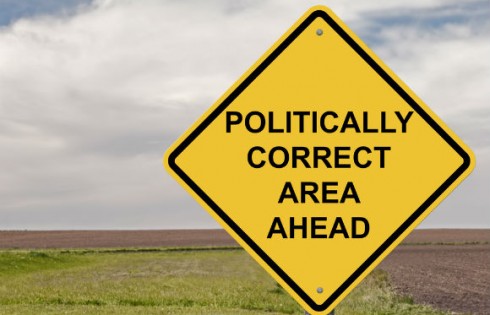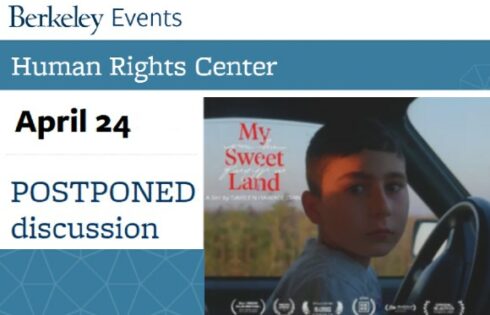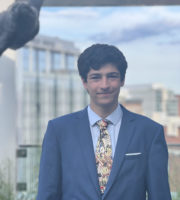
University’s decision was a big step in the rejection of ‘toddler culture,’ Cornell professor said
Cornell University leaders have rejected a student government resolution that would require instructors to provide trigger warnings and allow students to opt-out of “exposure” without penalty.
“We cannot accept this resolution, as the actions it recommends would infringe on our core commitment to academic freedom and freedom of inquiry, and are at odds with the goals of a Cornell education,” President Martha Pollack and Provost Michael Kotlikoff wrote in a letter to the student body on April 3, less than one week after the resolution was approved.
“Learning to engage with difficult and challenging ideas,” they wrote, “is a core part of a university education: essential to our students’ intellectual growth, and to their future ability to lead and thrive in a diverse society.”
The university officials also noted that faculty members should have the right to determine what they teach in their classrooms.
The approved student government resolution, originally presented March 23, stated: “Student Assembly implores all instructors to provide content warnings on the syllabus for any traumatic content that may be discussed, including but not limited to: sexual assault, domestic violence, self-harm, suicide, child abuse, racial hate crimes, transphobic violence, homophobic harassment, xenophobia.”
“Be it finally resolved, students who choose to opt-out of exposure to triggering content will not be penalized, contingent on their responsibility to make up any missed content,” it continued.
The assembly unanimously approved the document, known as Resolution 31, according to The New York Times. To student proponents of the resolution, the university’s swift denial was frustrating, the Times reported.
“We have been characterized as triggered snowflakes,” Shelby Williams, a sophomore who co-sponsored the resolution, told the paper. “What we are asking for is greater context.”
Five days prior to Cornell’s rejection of the resolution, the Foundation for Individual Rights and Expression wrote a letter to Cornell urging its leaders to reject the resolution.
FIRE criticized the “vague and overbroad” definition of “triggering,” stressing that the resolution would unfairly jeopardize free speech and “indisputably chill teaching.” Moreover, any blanket provision that would require faculty to add trigger warnings “violates their right to pedagogical autonomy.”
The Cornell Free Speech Alliance, a group of over 12,000 alumni and supporters, expressed support for the university’s decision in a letter addressed to Cornell’s president and chairman of their Board of Trustees, reviewed by The College Fix.
“CFSA thanks you for the urgent attention, correct decision, and decisive action taken by Cornell leadership in recent days to blunt the pernicious march toward Cancel Culture and GroupThink which has plagued America’s universities in recent years,” wrote alliance representatives.
Randy Wayne, an associate professor of biology at Cornell University, told The College Fix that he was pleased with the university’s rejection of Resolution 31. It was a big step in the rejection of “toddler culture” and offered hope in the institution’s return to “its classical liberal intellectual mission of education,” he said.
Professor Wayne also said he would be happy to include a content warning to his syllabi that states, “Warning: Everything I present in this class should trigger you to think and look at each issue from many perspectives.”
The New York Times included comment from Connor Strobel, a professor of social sciences at the University of Chicago, who told the paper that trigger warnings can simply “open up a conversation” if used correctly. Strobel’s own proposal as a graduate student in favor of trigger warnings inspired the students’ Cornell resolution.
“At a university, there is no topic that should be off the table, but trigger warnings are a preview of coming attractions that treat students with humanity,” Strobel said.
The Times also quoted Amna Khalid, professor of history at Carleton College in Northfield, Minn., who has criticized cancel culture and DEI. Khalid told the paper that “students with diagnosed PTSD are entitled to care from universities and should be treated by trained professionals.”
However, Khalid termed trigger-warning requirements “an infringement on the academic freedom of professors whose role is to help students develop critical thinking skills,” The Times reported.
“Sometimes that requires surprising them and challenging them in ways that are uncomfortable,” she said. “It diminishes the learning experience for students if professors hedge themselves.”
MORE: Cornell University refuses to cancel Ann Coulter speech
IMAGE: Wikimedia Commons
Like The College Fix on Facebook / Follow us on Twitter






Please join the conversation about our stories on Facebook, Twitter, Instagram, Reddit, MeWe, Rumble, Gab, Minds and Gettr.